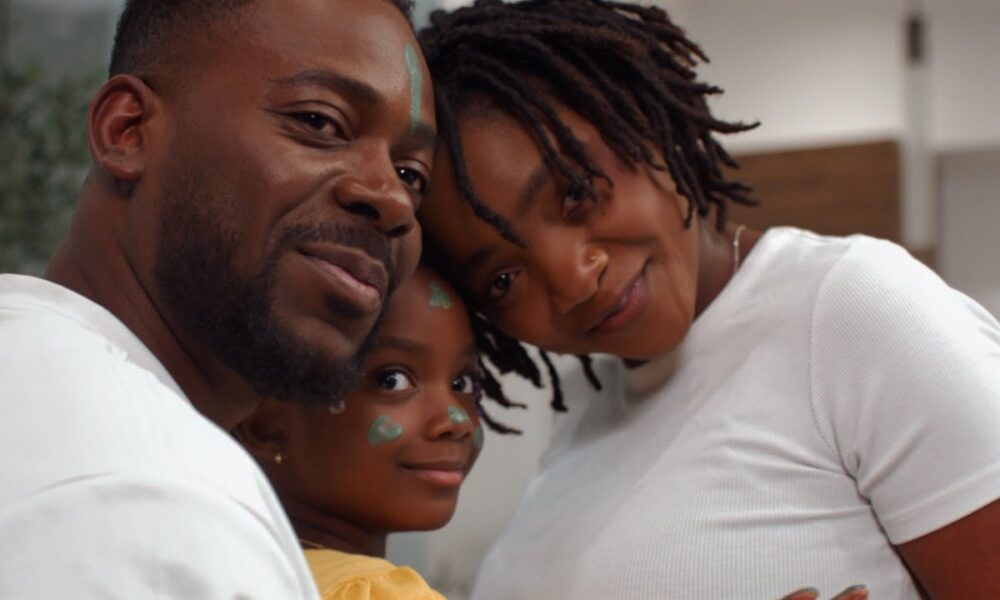Success Abroad, Silence at Home: The Diaspora Guilt Complex

There is a particular kind of silence that follows many African migrants across borders, one that settles in between phone calls, WhatsApp messages and the small decisions made each day in faraway cities. It is the silence that appears when a migrant hesitates before sharing good news, or downplays the realities of their life abroad because the gap between their world and home feels too wide, too politically charged, to speak about freely.
This silence is rarely acknowledged publicly, yet it shapes conversations, dictates emotional boundaries and influences how migrants move through their new environments. This unspoken pressure forms what increasingly resembles a “diaspora guilt complex,” a phenomenon mirrored across migrant communities worldwide but intensified within African migration because of the continent’s complicated relationship with aspiration, hardship and progress.
But where does this guilt come from, and why does it endure even among those who worked relentlessly for the opportunities they feel compelled to minimize?
How Diaspora Guilt Takes Shape
Diaspora guilt rarely arrives all at once. It builds gradually, shaped by contrasting realities and the emotional expectations that accompany them. For many migrants, the shift begins within weeks of arrival. The relative stability of systems abroad quickly becomes impossible to ignore. Even when they work long hours, juggle multiple jobs or battle isolation, the predictability of daily life stands in stark contrast to the unpredictability left behind.
Research on African migration patterns shows that the majority of migrants move not only for economic reasons but for stability, opportunity, safety and professional mobility. Yet, many find themselves downplaying these improvements when speaking to family and friends back home, especially when they realize how closely their progress is being monitored.
A typical pattern emerges, migrants begin editing their realities. This emotional editing becomes a habit, forming a quiet but persistent guilt that many migrants cannot fully articulate. The guilt shapes more than conversations, it also affects self-image. Migrants are often caught between the desire to embrace new opportunities and the fear that doing so will distance them from their roots. The result is an internal negotiation that becomes increasingly complex the longer they stay abroad.

What Drives Diaspora Guilt?
Several factors contribute to the persistence of diaspora guilt, and many of them intersect with cultural, economic and emotional expectations. One of the strongest drivers is the stark inequality between life at home and life abroad. Even when migrants face challenges, the infrastructural stability in countries like Canada or Germany can feel like an unimaginable luxury compared to persistent economic uncertainty in parts of Nigeria or Zimbabwe.
Family expectations form another major layer. In many African contexts, migration is framed as an investment the entire family participates in, whether financially or emotionally. Once abroad, the migrant becomes a beacon of hope, someone expected to uplift others, send money and represent the family honorably. This creates a deep sense of obligation that easily morphs into guilt, especially when migrants cannot meet every request.
There is also the social pressure from home communities, where narratives around success abroad are both aspirational and suspicious. Stories circulate about those who “forgot where they came from,” leaving migrants hyper-aware of how their choices are perceived. The duality of admiration mixed with surveillance, conditions many to shrink their achievements as a protective measure.
Also, the psychological impact of distance itself cannot be overstated. As migrants build new lives abroad, they often experience a form of “survivor’s guilt”, knowing that loved ones back home face difficulties they can no longer directly share. This emotional distance makes even basic comforts feel undeserved. In many cases, guilt becomes a way to maintain connection, a reminder that they have not entirely left their people behind.
Diaspora Connect
Stay Connected to Home
From Lagos to London, Accra to Atlanta - We Cover It All.
The Psychology of Living Better While Feeling Worse
The emotional landscape of this guilt is deeply complex, shaped by the push and pull of belonging. Psychologists describe the phenomenon as a form of dual loyalty stress, where individuals try to remain emotionally anchored in two worlds with competing demands.
The resulting action is that omission of details serves as emotional cushioning, softening the perceived gap between expectations and reality. Over time, this selective sharing becomes a psychological habit. Migrants learn to read the emotional temperature of conversations, sensing when to withhold details to avoid triggering envy, disappointment or financial requests. This stems from a desire to maintain harmony but often leaves migrants feeling fragmented, with one version of themselves abroad and another curated version in conversations with home.
The psychology becomes even more layered when migrants experience success. Many mention feeling uneasy, as though the happiness must be rationed or hidden. Success becomes something to manage and not celebrate, because celebration feels like betrayal of those still struggling.
Silence as a Survival Strategy
For many, silence becomes a practical way to navigate the emotional complexities of diaspora life. This silence is not rooted in dishonesty but in emotional preservation, a way to avoid difficult conversations, unmet expectations or unnecessary strain. It becomes a way to manage pressure. It also functions as a boundary. Life abroad often demands emotional energy, and by speaking less, migrants create emotional space to survive their new realities.
But silence has a cost. It often deepens the emotional distance migrants already feel, turning relationships into filtered exchanges where the full truth is rarely spoken. It can also amplify loneliness, especially when migrants have no one with whom they can share their genuine experiences. Over time, silence becomes both a shield and a burden.
The Cost of Carrying a Whole Continent’s Expectations
African migrants often describe feeling as though they carry not just family expectations, but the weight of entire communities. The narrative of making it abroad is powerful across many parts of the continent. It is woven into films, songs, social media and everyday conversation. Migration is often perceived as a portal to a better life, and those who step through it are expected to return with tangible proof.
This cultural framing places intense pressure on migrants, who become symbolic figureheads even when they do not seek the role. The cost of these expectations shows up financially, emotionally and socially. Even small decisions, like buying new clothes or upgrading an apartment, are weighed against how they might be perceived by those waiting for support.
The emotional taxation often shapes how migrants build their lives abroad. Many work longer hours than necessary, save obsessively or avoid investing in themselves to maintain the financial flow expected from them.
Diaspora Connect
Stay Connected to Home
From Lagos to London, Accra to Atlanta - We Cover It All.
Toward a Healthier Relationship Between Home and Abroad
A healthier approach to diaspora relationships requires honesty, cultural recalibration and a shared understanding of the complexities migrants face. It begins with reshaping the narratives around migration, acknowledging that life abroad is not a guarantee of wealth but a complex journey filled with its own challenges. Media outlets and community organizations play a crucial role in shifting this perspective, highlighting diverse, realistic migrant experiences rather than idealized success stories.
It also requires migrants to embrace more balanced storytelling in their personal lives. This does not mean oversharing or abandoning boundaries, but finding spaces where it is possible to express gratitude for improved living conditions without feeling indebted, and to acknowledge struggle without erasing progress.
Governments and policymakers also have a role to play. And perhaps most importantly, families and communities back home must evolve in how they relate to migrants.

Conclusion
The diaspora guilt complex will likely remain part of the African migration story for a long time, woven into the emotional threads that connect home and abroad. But understanding it opens the possibility for gentler relationships, healthier expectations and more honest communication between continents. Living better should not require an apology, and progress in one place should not deepen pain in another.Migration, at its core, is an act of hope. And hope deserves room to breathe.
Recommended Articles
Adekunle Gold & Simi's Baby Joy: Stars Announce Another Pregnancy!

Music power couple Adekunle Gold and Simi are expanding their family, with the joyous pregnancy announcement made subtly...
Davido's DNA Scandal Ignites: Leaked Chats Fuel Baby Mama Drama

A deepening paternity dispute involves Afrobeats star Davido and teenager Anuoluwapo Mitchelle, whose mother, Ayo Labinj...
Nigeria to Launch Digital Single Travel Emergency Passport in 2026

Nigeria introduces the Single Travel Emergency Passport in January 2026, modernizing identity management, streamlining t...
You may also like...
Super Eagles Fury! Coach Eric Chelle Slammed Over Shocking $130K Salary Demand!
)
Super Eagles head coach Eric Chelle's demands for a $130,000 monthly salary and extensive benefits have ignited a major ...
Premier League Immortal! James Milner Shatters Appearance Record, Klopp Hails Legend!

Football icon James Milner has surpassed Gareth Barry's Premier League appearance record, making his 654th outing at age...
Starfleet Shockwave: Fans Missed Key Detail in 'Deep Space Nine' Icon's 'Starfleet Academy' Return!

Starfleet Academy's latest episode features the long-awaited return of Jake Sisko, honoring his legendary father, Captai...
Rhaenyra's Destiny: 'House of the Dragon' Hints at Shocking Game of Thrones Finale Twist!

The 'House of the Dragon' Season 3 teaser hints at a dark path for Rhaenyra, suggesting she may descend into madness. He...
Amidah Lateef Unveils Shocking Truth About Nigerian University Hostel Crisis!

Many university students are forced to live off-campus due to limited hostel spaces, facing daily commutes, financial bu...
African Development Soars: Eswatini Hails Ethiopia's Ambitious Mega Projects

The Kingdom of Eswatini has lauded Ethiopia's significant strides in large-scale development projects, particularly high...
West African Tensions Mount: Ghana Drags Togo to Arbitration Over Maritime Borders

Ghana has initiated international arbitration under UNCLOS to settle its long-standing maritime boundary dispute with To...
Indian AI Arena Ignites: Sarvam Unleashes Indus AI Chat App in Fierce Market Battle

Sarvam, an Indian AI startup, has launched its Indus chat app, powered by its 105-billion-parameter large language model...
